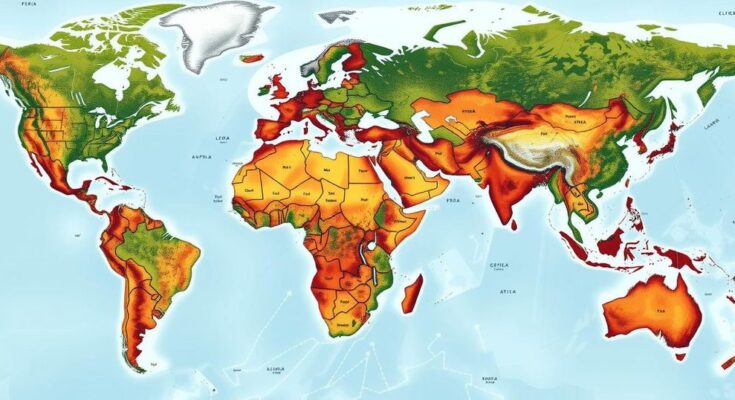The ND-GAIN index provides a detailed assessment of Africa’s vulnerability and adaptive capacity to climate change in 2021. The evaluation emphasizes the importance of economic stability and governance in resilience strategies across different nations. Increased preparedness reflects a nations’ capacity to handle future climate challenges, while those less equipped risk facing severe adverse impacts.
In a comprehensive analysis of the vulnerability and readiness to climate change across African nations in 2021, the ND-GAIN index serves as a crucial tool. This index evaluates the ability of countries to adapt to and mitigate the impacts of climate change by measuring their exposure to environmental hazards and their overall preparedness. Factors such as economic stability, social dynamics, and governance quality contribute significantly to this assessment, illustrating the multifaceted nature of climate change challenges faced by Africa. Countries that score higher on this index exhibit greater resilience and better mechanisms in place to address climate-related risks, whereas lower-scoring nations may struggle with severe impacts due to economic constraints and inadequate infrastructure.
Moreover, the statistics reveal that many African countries are highly vulnerable to climate change, with significant potential for adverse economic and social consequences. As climate-related disasters become more frequent, the implications for agriculture, public health, and migration patterns are profound. Countries exhibiting strong adaptation strategies and robust climate finance mechanisms tend to fare better in both current assessments and projected outcomes.
The focus on Africa’s vulnerability and readiness to climate change is critical, given the continent’s unique challenges and opportunities. Climate change poses a significant threat to many regions in Africa, exacerbated by existing economic and social vulnerabilities. The ND-GAIN index, developed by the University of Notre Dame, is instrumental in evaluating how these factors influence a nation’s ability to respond to climate-related threats. Understanding the index’s methodology and the indicators it encompasses is vital for grasping the overall context of climate change in Africa.
The ND-GAIN index reveals a varied landscape of vulnerability and preparedness among African countries concerning climate change. Nations that invest in improving their resilience and adaptation strategies will likely experience reduced adverse impacts from climatic changes. As the continent grapples with these challenges, strengthening governance, enhancing infrastructure, and increasing financial resources for climate initiatives must be prioritized to safeguard the future of its populations and economies.
Original Source: www.statista.com




